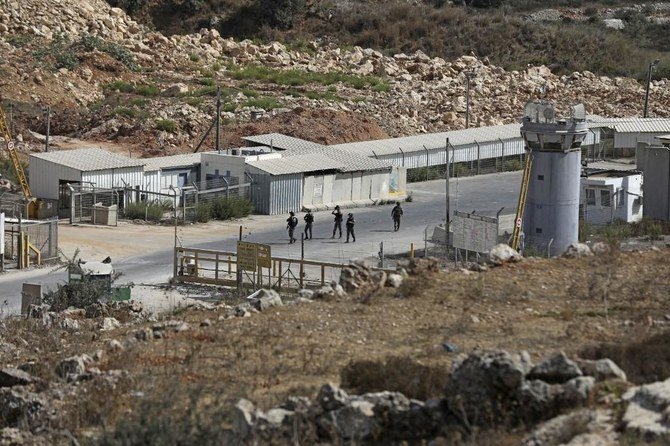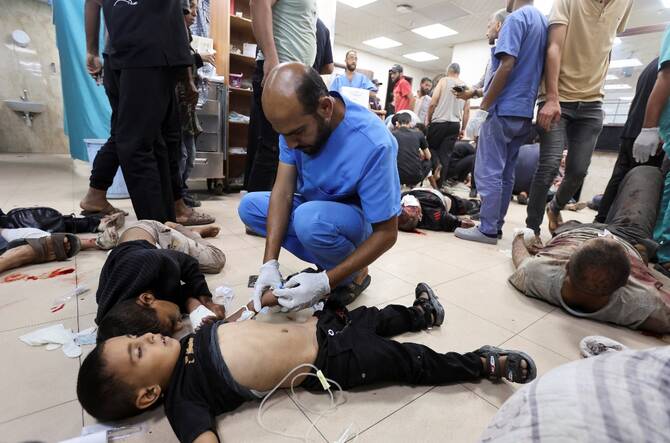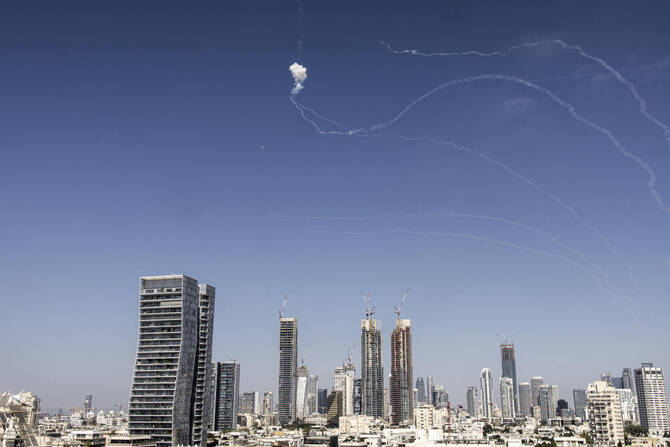Daoud Kuttab
AMMAN: There are 4,500 Palestinians in Israeli prisons, including an 82-year-old man who has been behind bars since 2001, according to the Palestinian Prisoners’ Club NGO.
It released the figures to mark Palestinian Prisoner’s Day, which is observed on April 17.
Of the thousands behind bars, 430 are administrative detainees held without charge or trial, including 180 children and 41 women and girls.
There are 550 prisoners suffering from various illnesses, including 11 with cancer, seven with kidney failure, and heart disease. One of the sick prisoners is Foad Shobaki, who is 82.
There are eight prisoners with serious disabilities, said the NGO, adding that 222 prisoners had died in Israeli prisons since 1967.
Prisoner’s Day had become an occasion for paying tribute to the 1 million people jailed since 1967, the Palestine National Council (PNC) said.
According to the council, 73 prisoners had died as a result of physical torture while 67 died because of medical negligence.
It said that prisoners caught in a war or armed struggle were not destined to remain imprisoned for life, as indicated in the Third Geneva Convention.
The PNC said there were 14 prisoners who had spent more than 30 years in jail, and 47 who had been imprisoned for more than 20 years.
Israel continues to detain 25 prisoners held before the Declaration of Principles between Israel and the Palestine Liberation Organization (PLO), in which Israel promised to release them but reneged at the last moment in 2014.
Former PLO Executive Committee member, Hanan Ashrawi, tweeted: “It’s important to understand the grave injustice that the Israeli Occupation inflicts on them and on the whole nation. The legal and political systems, the judiciary, the military and security forces are all in the service of an illegal and oppressive occupation.”
Fatah’s deputy chair Mahmoud Alloul said the prisoners’ cause was part of every Palestinian’s mind and consciousness.
His son Jihad, a Najah University student, was killed by Israeli gunfire during the second intifada.
Alloul told the Voice of Palestine radio station: “Prisoners have sacrificed a lot having to spend their entire lifetime behind bars for their homeland. We will not carry (out) any political move without ensuring the freedom of the prisoners.”
He emphasized that the Palestinian leadership had resisted persistent pressure to stop support for prisoners and their families, saying that Israel had stolen money earmarked for the Palestinian Authority because of its continued support to prisoners and their families.
Khalil El-Halabi, whose son Mohammed has been held by the Israelis since 2016, made an appeal to world leaders — including Israeli ones.
He called for “building a new life based on peace for all the believers in God, Muslims, Christians, Jews and others.”
El-Halabi said his son was jailed because of false accusations that he diverted charitable funds to an illegal organization.
“The charity my son works for (World Vision) and the Australian government have thoroughly investigated these allegations and found them to be untrue,” he told Arab News. “Yet my son is in jail for five years despite torture that caused him to lose 50 percent of his hearing, simply because he refused to sign a plea bargain deal in which he would have to admit to a crime he did not commit.”
There were many like Mohammed who were tortured and charged with false accusations, he said, urging the Israeli people to seek justice if they wanted peace.
“Holding prisoners indefinitely will not bring peace and security and will not provide justice. I know that millions around the world would like to see peace between Israelis and Palestinians. Releasing innocent prisoners is the first step toward a lasting peace.”






















